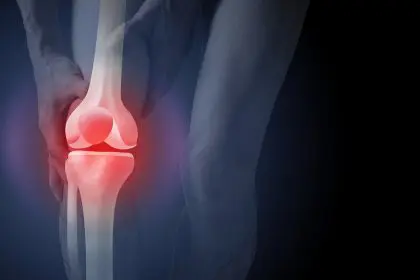When it comes to men‘s health, prostate issues often go unaddressed until they become severe problems. Understanding the warning signs can lead to early detection and more effective treatment outcomes. Here are seven critical signs that indicate it’s time to schedule a prostate examination.
Changes in urination patterns
One of the most common indicators of prostate problems is a change in how you urinate. If you notice increased frequency, especially at night, or find yourself making multiple trips to the bathroom, it’s time to pay attention. Some men also experience difficulty starting urination or a weak urine stream that stops and starts.
Discomfort or pain during urination
Experiencing burning sensations or pain while urinating isn’t normal. This discomfort could indicate various prostate conditions, including inflammation or infection. Don’t dismiss these symptoms as temporary inconveniences – they deserve medical attention.
Blood presence in urine or semen
Finding blood in your urine or semen can be alarming and should never be ignored. While it might not always indicate a serious condition, it’s a clear signal that something requires medical investigation. This symptom could be related to prostate problems or other health issues that need immediate attention.
Persistent pain in the lower back
Lower back pain, particularly if it’s concentrated in the lower spine or pelvic area, might be related to prostate issues. This discomfort can range from a dull ache to sharp pain, especially if the prostate condition is affecting surrounding tissues or nerves.
Difficulty with intimate activities
Changes in sexual function, including difficulty maintaining an erection or experiencing pain during ejaculation, could be related to prostate problems. While these symptoms might be embarrassing to discuss, they’re important indicators that shouldn’t be ignored.
Unexplained weight loss
Sudden or unexplained weight loss without changes in diet or exercise habits could be a warning sign of various health conditions, including prostate issues. If you notice significant weight changes, especially combined with other symptoms, it’s crucial to seek medical evaluation.
Family history and age considerations
While not a physical symptom, being over 50 or having a family history of prostate problems significantly increases your risk. If you fall into these categories, regular prostate screenings become even more critical, regardless of whether you’re experiencing symptoms.
Understanding the importance of early detection
Regular prostate examinations are crucial for maintaining men’s health, especially as they age. Early detection often leads to more treatment options and better outcomes. Don’t let embarrassment or fear prevent you from seeking necessary medical care.
When to take immediate action
While some symptoms might develop gradually, certain signs require immediate medical attention. These include complete inability to urinate, severe pain, or high fever accompanied by prostate-related symptoms. These could indicate serious conditions requiring urgent care.
The role of regular screenings
Prevention and early detection are key to maintaining prostate health. Regular screenings, especially for men over 50 or those with risk factors, can catch potential problems before they become serious. Having open discussions with your health care provider about screening schedules and risk factors is essential.
Overcoming hesitation
Many men avoid prostate examinations due to embarrassment or anxiety. However, these brief examinations can be lifesaving. Modern medical practices prioritize patient comfort and dignity, making the experience as comfortable as possible.
Taking the next step
If you’re experiencing any of these symptoms, don’t wait to seek medical attention. Schedule an appointment with your health care provider to discuss your concerns and undergo appropriate screening. Remember, proactive health care is always better than reactive treatment.
The bottom line is that being aware of these warning signs and acting on them promptly can make a significant difference in treatment outcomes. Don’t let misconceptions or embarrassment prevent you from getting the care you need. Your health is worth the momentary discomfort of discussing these symptoms with a medical professional.















